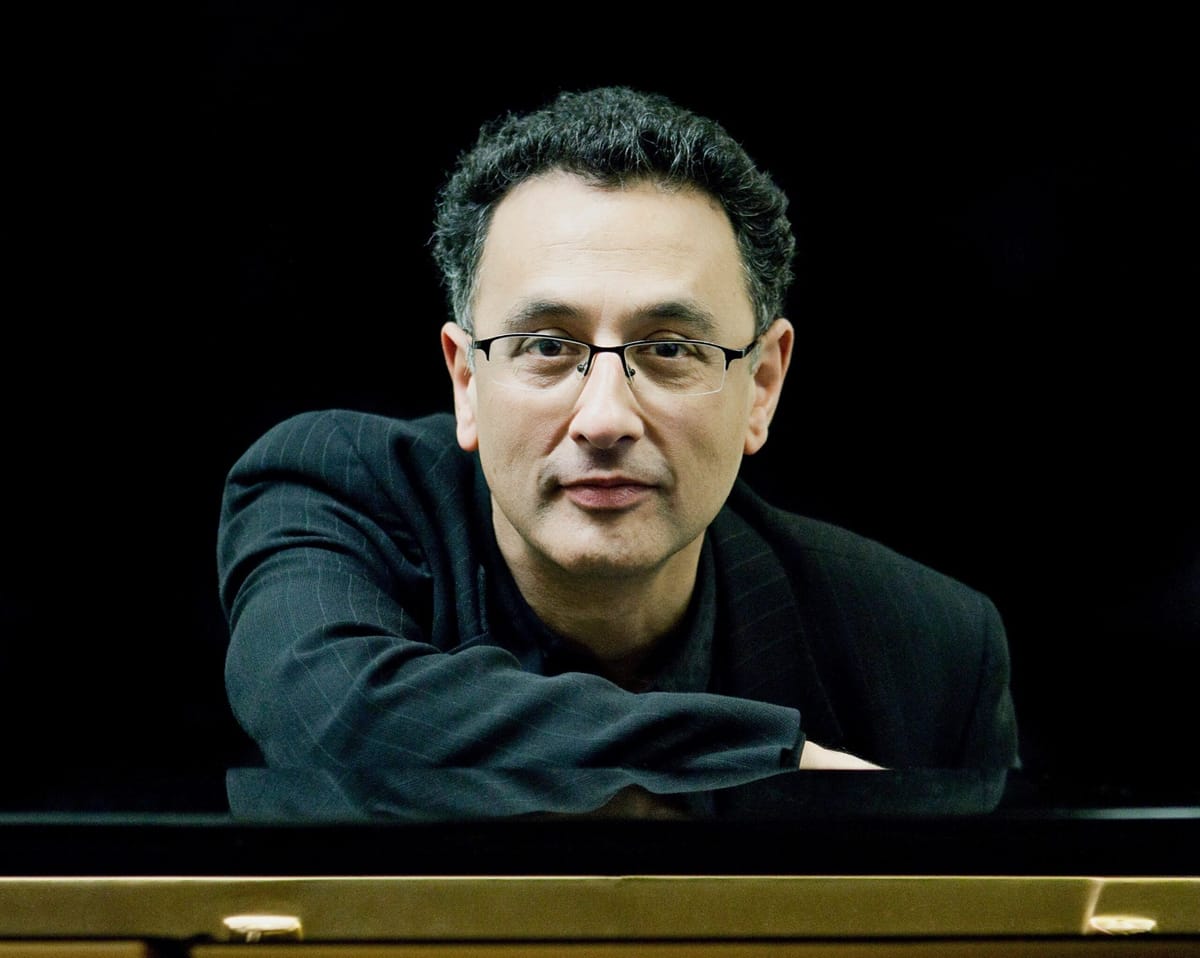Performing Arts: Western Classical Music

This month, Fali Pavri, concert pianist and Associate Head of Keyboard at the Royal Conservatoire of Scotland, muses on performing, teaching and his forthcoming concerts at the NCPA.
One of the biggest challenges I face is finding the right balance between performing, teaching and juggling all the other things that make for a fulfilling and rich life—in my case, spending time with the family, reading, listening to music, cooking, badminton, swimming, playing bridge, going to concerts, restaurants and the cinema, taking the dog for a walk, having friends round, to name but a few. It is astonishing how much one can fit into a day if you approach everything you do with enthusiasm, commitment and curiosity.
Teaching takes up a large chunk of my time. I have always found it rewarding and fascinating. Every student is different. My aim is to help them develop the tools they need to find their own voice, enabling them to communicate convincingly their vision of the music in their performances. For some students this might involve providing them with basic technical foundations that they lack, for others it could be to give them the confidence to open up emotionally and express themselves freely through their music-making. Above all, the playing must communicate and touch the listener emotionally. There are thousands of pianists who play accurately and have good techniques. The ones that really capture attention and succeed have something extra, a big musical personality, with something vitally important to say through their music.
“This note or phrase doesn’t speak enough” is an observation that often comes up in my lessons. The key word here is “speak” because music is a language in which instead of words, we use sound. Like in any language, in order to communicate effectively we need to master its grammar and syntax. In music, this is an understanding of harmony, rhythm, etc. Like in all languages, we need to be able to construct meaningful sentences and paragraphs. For musicians, this is phrasing, knowing where to breathe, and just like a skilled actor or orator, to clearly articulate and use timing to dramatic effect. Of course, mastery of a language requires having a good vocabulary—for a musician this includes a wide-ranging palate of tone colours and dynamics. I wish children were taught to read music in school as part of their curriculum. It is not difficult and it would open up a whole new world. It has been shown time and again how beneficial learning a musical instrument is to brain development in children, not to speak of the power of music to enrich us spiritually and make us better human beings.
I treasure the time I have for practising. As the wonderful pianist Peter Serkin once said, “Practising is a peaceful way to spend the day”. Whenever the challenges and frustrations of being a pianist get me down, I remember what a great privilege it is to be doing what I do. Being a musician is stimulating and fulfilling on so many levels. It demands incredible physical skills and dexterity, mental acuity, emotional awareness and intelligence and above all, on a spiritual level, it provides food for the soul. On top of all that, when it is played well, it can provide huge comfort, solace and joy to others. How many other professions can do all that?
I will be playing three great works in my recital at the NCPA on 19th April—the very last sonatas by Haydn, Beethoven and Schubert. The Haydn sonata is his grandest and most spacious work, revolutionary in the way it exploits all the sonorities and capabilities of the newly developed fortepiano and it is full of wit, charm and virtuosic brilliance. The Beethoven sonata Op. 111 takes us on a philosophical journey from the drama and earthly struggles in the first movement to a state of almost Zen-like peace and enlightenment at the end of the Adagio. The Schubert B-flat sonata is a vast landscape that conveys all it is to be human—serenity and acceptance, grief, loneliness and ultimately, joy.
Then, on 21st April I will join my friend, Ralph de Souza and colleagues from the SOI in a performance of Schubert’s “Trout” quintet—music that bubbles along with a wonderful optimism and congeniality. It is truly a fitting work to play in a world that is sorely in need of compassion, kindness and hope.
This piece was originally published by the National Centre for the Performing Arts, Mumbai, in the April 2022 issue of ON Stage – their monthly arts magazine.





